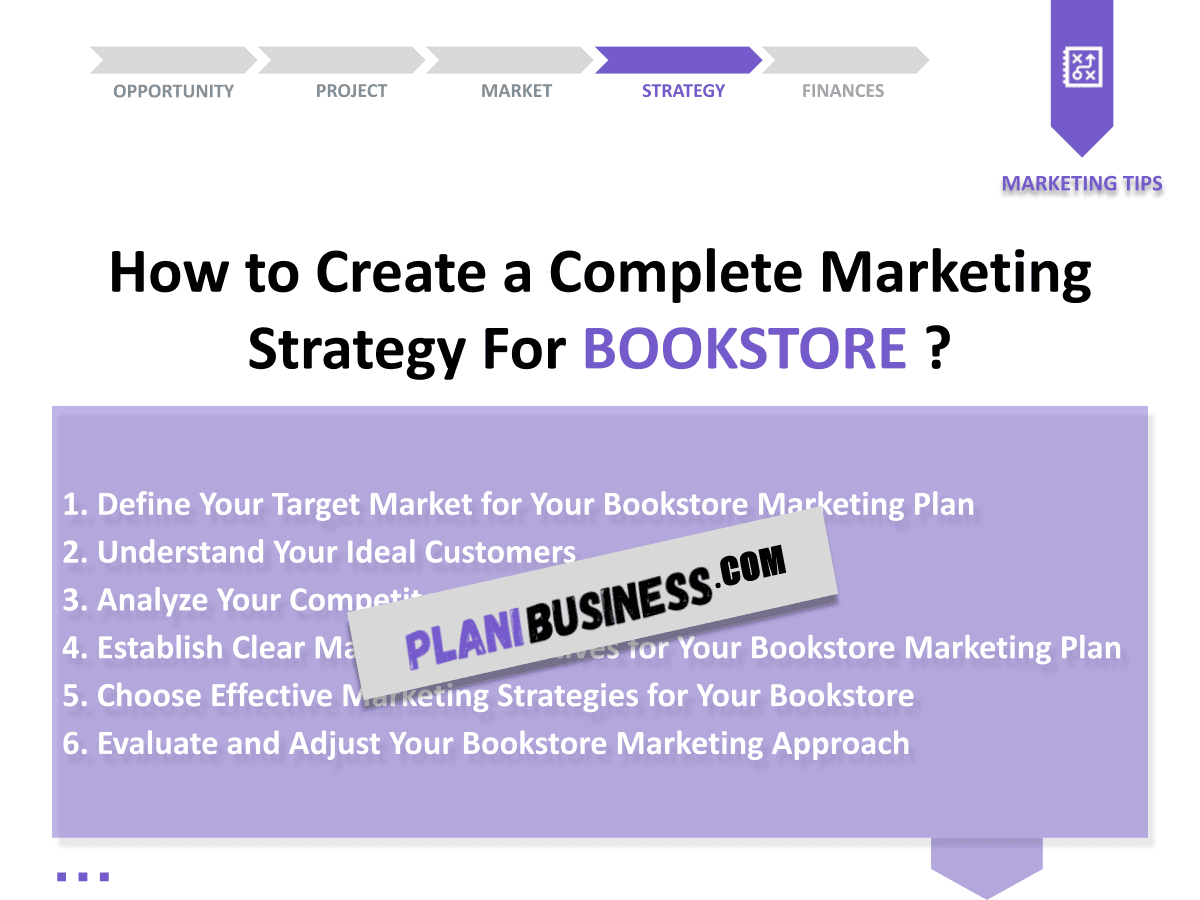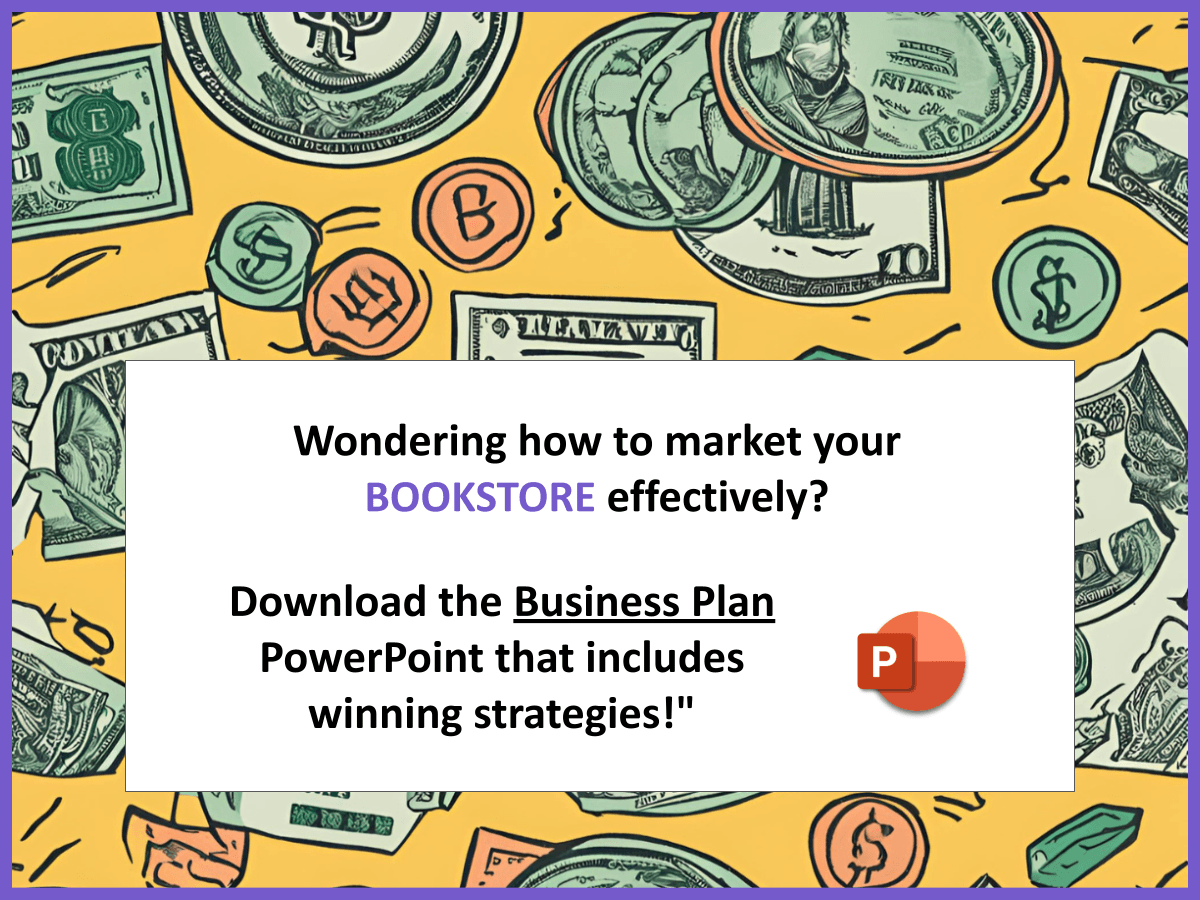Did you know that nearly 70% of independent bookstores fail within the first five years? You’re not alone if you’re feeling overwhelmed by the thought of starting your own bookstore! Crafting a solid Bookstore Marketing Plan is crucial for your success. In simple terms, a Bookstore Marketing Plan outlines the strategies and tactics you’ll use to attract and retain customers while achieving your business goals. In this article, we’ll dive into the essentials of creating a robust marketing plan, covering everything from understanding your target market to evaluating your strategies.
1. Define Your Target Market for Your Bookstore Marketing Plan
| Demographic | Characteristics | Interests |
|---|---|---|
| Age Group | 18-35 | Young adult fiction, graphic novels |
| Location | Urban areas | Literary events, book clubs |
Understanding your target market is the first step in your Bookstore Marketing Plan. It’s essential to identify who your customers are. Think about demographics like age, gender, and location. For example, if you’re in a college town, your market might lean towards students who are looking for textbooks, study guides, or popular novels. You can also consider psychographics, like lifestyle and interests.
Additionally, conducting surveys can provide valuable insights. I remember running a small survey in my community that revealed surprising preferences. This data helped me tailor my inventory to better match my customers’ needs. It’s all about knowing who you’re selling to!
2. Understand Your Ideal Customers
| Customer Type | Behaviors | Buying Patterns |
|---|---|---|
| Students | Frequent visitors during the school year | Looking for discounts and promotions |
| Book Lovers | Attend events and signings | Purchase bestsellers and classics |
Once you’ve defined your target market, it’s time to dig deeper into your ideal customers. Who are they? What do they love? For instance, I learned that my ideal customers are not just looking for books; they want a community. Engaging with them through book signings or readings can foster loyalty and keep them coming back.
Understanding their motivations can also lead to more effective marketing strategies. I once ran a promotion tailored for students during exam week, and it resulted in a significant sales boost. Knowing your ideal customers isn’t just about demographics; it’s about connecting with them on a personal level.
3. Analyze Your Competitors
| Competitor | Strengths | Weaknesses |
|---|---|---|
| Local Chain Store | Wide selection, discounts | Less personal service |
| Online Retailer | Convenience, pricing | No local engagement |
Understanding the competition is vital for your Bookstore Marketing Plan. Take the time to analyze what they’re doing right and where they’re falling short. For example, I once overlooked a competitor’s community events that were drawing in crowds. Once I recognized that, I started hosting my own events, which significantly improved foot traffic!
It’s also helpful to keep tabs on their marketing strategies. Are they utilizing social media effectively? Do they have a loyalty program? Analyzing these aspects can help you identify gaps in your own approach. I learned that my competitor’s email marketing was drawing in customers, prompting me to enhance my own email campaigns.
4. Establish Clear Marketing Objectives for Your Bookstore Marketing Plan
| Objective | Action Plan | Timeline |
|---|---|---|
| Increase foot traffic | Host weekly events | 3 months |
| Boost online sales | Launch an e-commerce site | 6 months |
Setting clear marketing objectives is crucial for guiding your Bookstore Marketing Plan. For example, one of my objectives was to increase foot traffic by 30% over six months. I created a detailed action plan that included hosting events, running promotions, and enhancing the in-store experience.
Additionally, your objectives should be SMART: Specific, Measurable, Achievable, Relevant, and Time-bound. When I first started, I set vague goals like “increase sales.” But once I switched to specific targets, like “increase sales by 20% in three months,” I saw better results. Regularly reviewing these objectives helps keep your marketing efforts aligned with your overall business goals!
5. Choose Effective Marketing Strategies for Your Bookstore
| Strategy | Implementation | Expected Outcome |
|---|---|---|
| Social Media Marketing | Create engaging content | Increase brand awareness |
| Email Marketing | Send monthly newsletters | Boost repeat sales |
Your Bookstore Marketing Plan should include effective marketing strategies tailored to your goals. For instance, I found that social media marketing was a game changer for my bookstore. Posting engaging content and connecting with customers on platforms like Instagram increased my visibility and drew in new customers.
Moreover, don’t underestimate the power of email marketing. Sending out monthly newsletters with updates, promotions, and book recommendations can significantly boost repeat sales. When I started my email campaign, I noticed a 15% increase in returning customers. So, think creatively about how to engage your audience!
6. Evaluate and Adjust Your Bookstore Marketing Approach
| Evaluation Method | Frequency | Key Metrics |
|---|---|---|
| Customer Feedback | Monthly | Satisfaction ratings |
| Sales Data Analysis | Quarterly | Sales growth |
Evaluating your marketing efforts is essential to the success of your Bookstore Marketing Plan. For example, I regularly collected customer feedback and analyzed sales data. This helped me identify which strategies were working and which needed tweaking. Adjusting your approach can make all the difference!
Set a schedule for regular evaluations. I found it helpful to review customer feedback monthly and sales data quarterly. This routine allowed me to pivot my strategies effectively. If something isn’t working, don’t be afraid to change it up! Flexibility is key in the ever-evolving world of retail.
7. Example N°1 of Marketing Plan for a Bookstore
| Steps | Actions | Details |
|---|---|---|
| 1 | Target Market | Focus on college students |
| 2 | Ideal Customers | Book lovers, students |
| 3 | Competitors | Local chains, online retailers |
| 4 | Marketing Objectives | Increase foot traffic by 20% |
| 5 | Marketing Strategies | Host events, social media campaigns |
| 6 | Evaluation | Monthly feedback sessions |
This marketing plan focuses on attracting college students, a key demographic for many bookstores. By hosting events like author signings or poetry readings, you can create a buzz that draws in this audience. Social media campaigns tailored to student interests can also enhance engagement.
Additionally, utilizing feedback from these events can help refine your approach. I remember one event where we gathered insights from attendees, which led to better future events. This kind of interaction fosters a community feel that students love!
8. Example N°2 of Marketing Plan for a Bookstore
| Steps | Actions | Details |
|---|---|---|
| 1 | Target Market | Families with kids |
| 2 | Ideal Customers | Parents, children |
| 3 | Competitors | Big box stores |
| 4 | Marketing Objectives | Boost kids’ book sales by 30% |
| 5 | Marketing Strategies | Storytime events, family discounts |
| 6 | Evaluation | Sales tracking |
This plan centers around attracting families, particularly through engaging activities like storytime events for kids. Offering discounts on children’s books during these events can encourage purchases and build loyalty among parents.
When I implemented similar strategies, I noticed a significant uptick in sales during family-oriented events. The key is to create a welcoming atmosphere that encourages families to spend time in your bookstore. Tracking sales before and after these events can help measure their effectiveness!
9. Example N°3 of Marketing Plan for a Bookstore
| Steps | Actions | Details |
|---|---|---|
| 1 | Target Market | Young professionals |
| 2 | Ideal Customers | Readers of contemporary fiction |
| 3 | Competitors | Online book retailers |
| 4 | Marketing Objectives | Increase membership in the book club by 50% |
| 5 | Marketing Strategies | Networking events, social media ads |
| 6 | Evaluation | Membership growth tracking |
This marketing plan targets young professionals who enjoy contemporary fiction. By organizing networking events and book club meetings, you can create a community that encourages membership and participation.
Social media ads can also be a powerful tool for reaching this demographic. I discovered that promoting our book club through targeted ads resulted in a significant increase in sign-ups. Regularly tracking membership growth will help you refine your strategies and ensure you’re meeting your objectives!
10. Example N°4 of Marketing Plan for a Bookstore
| Steps | Actions | Details |
|---|---|---|
| 1 | Target Market | Local authors |
| 2 | Ideal Customers | Writers and readers |
| 3 | Competitors | Other local bookstores |
| 4 | Marketing Objectives | Host 5 author events in 6 months |
| 5 | Marketing Strategies | Author signings, workshops |
| 6 | Evaluation | Event attendance tracking |
This plan focuses on engaging local authors and readers through events. Hosting author signings and workshops not only promotes local talent but also builds community around your bookstore.
When I began hosting similar events, I noticed an increase in foot traffic and sales. Tracking attendance at these events is crucial for understanding their impact and planning future activities. Building strong relationships with local authors can also enhance your bookstore’s reputation as a community hub!
11. Example N°5 of Marketing Plan for a Bookstore
| Steps | Actions | Details |
|---|---|---|
| 1 | Target Market | Book clubs |
| 2 | Ideal Customers | Groups of readers |
| 3 | Competitors | Other local bookstores |
| 4 | Marketing Objectives | Increase book club sales by 40% |
| 5 | Marketing Strategies | Discounts for book clubs |
| 6 | Evaluation | Sales analysis |
This marketing plan is designed to attract book clubs by offering tailored discounts and promotions. By creating a special membership for book clubs, you can encourage bulk purchases and foster loyalty among these groups.
When I started offering discounts to book clubs, I noticed a surge in sales and repeat customers. Regularly analyzing sales data from these promotions will help you understand their effectiveness and adjust your strategies accordingly. Building relationships with local book clubs can also lead to word-of-mouth referrals!
12. Example N°6 of Marketing Plan for a Bookstore
| Steps | Actions | Details |
|---|---|---|
| 1 | Target Market | Gift buyers |
| 2 | Ideal Customers | Shoppers looking for unique gifts |
| 3 | Competitors | Gift shops |
| 4 | Marketing Objectives | Boost sales during holidays by 25% |
| 5 | Marketing Strategies | Gift wrapping, holiday events |
| 6 | Evaluation | Sales growth tracking |
This marketing plan targets gift buyers, especially during the holiday season. Offering unique gift-wrapping services and hosting holiday-themed events can attract customers looking for special gifts.
When I implemented similar strategies during the last holiday season, my sales increased significantly. Keeping track of sales growth during these events will help you evaluate their success and plan for future holidays. Creating a festive atmosphere can also enhance the shopping experience!
13. Example N°7 of Marketing Plan for a Bookstore
| Steps | Actions | Details |
|---|---|---|
| 1 | Target Market | Senior readers |
| 2 | Ideal Customers | Retired individuals |
| 3 | Competitors | Other local bookstores |
| 4 | Marketing Objectives | Increase sales of large print books by 20% |
| 5 | Marketing Strategies | Targeted promotions, community outreach |
| 6 | Evaluation | Sales analysis |
This marketing plan focuses on attracting senior readers, particularly those interested in large print books. Implementing targeted promotions and engaging in community outreach can help reach this demographic effectively.
When I started promoting large print books through local senior centers, I saw an increase in sales and a growing customer base. Evaluating sales data regularly will allow you to measure the effectiveness of your strategies and make necessary adjustments. Building relationships with local organizations can also create valuable partnerships!
Conclusion
Creating a successful Bookstore Marketing Plan is essential for any aspiring bookstore owner. By understanding your target market, analyzing your competitors, and establishing clear marketing objectives, you can develop effective strategies that drive sales and build a loyal customer base. Don’t forget to regularly evaluate and adjust your approach to stay relevant in a constantly changing market.
If you’re looking for a solid foundation for your bookstore, check out this business plan template for bookstores. Additionally, you might find our articles on How To Start a Bookstore? and how to create a SWOT analysis for a bookstore incredibly helpful as you embark on your journey. Remember, planning is key, and with the right strategies, your bookstore can thrive!
FAQ
- What is a bookstore marketing plan?A bookstore marketing plan outlines the strategies and tactics a bookstore will use to attract and retain customers while achieving business goals.
- Why is a marketing plan important for a bookstore?A marketing plan is crucial as it helps to define target audiences, set clear objectives, and determine effective marketing strategies to increase sales and customer engagement.
- What should be included in a bookstore marketing plan?Key components include target market analysis, competitor analysis, marketing objectives, marketing strategies, and evaluation methods.
- How can I identify my target market for my bookstore?You can identify your target market by analyzing demographics such as age, location, and reading preferences. Surveys and community feedback can also provide valuable insights.
- What are some effective marketing strategies for bookstores?Effective strategies may include social media marketing, email campaigns, hosting events, and creating loyalty programs to engage customers.
- How often should I evaluate my marketing plan?It’s recommended to evaluate your marketing plan regularly, with monthly assessments for customer feedback and quarterly reviews for sales data.
- What role does social media play in bookstore marketing?Social media is vital for engaging with customers, promoting events, and building community around your bookstore. It can significantly enhance your visibility.
- How can I attract local authors to my bookstore?Hosting events, signings, and workshops for local authors can create a supportive community and draw in their followers, boosting your bookstore’s visibility.
- What are some common mistakes to avoid in a bookstore marketing plan?Common mistakes include setting vague objectives, ignoring customer feedback, and failing to adapt to changing market conditions.
- How can I measure the success of my bookstore marketing plan?You can measure success through sales data, customer feedback, event attendance, and tracking engagement on social media and email campaigns.







